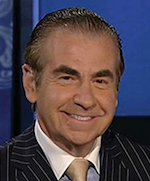 Fraser Seitel |
Last month, the Cleveland Browns, suffering through yet another losing season, fired its coach. The same week, the winless/Labronless Cleveland Cavaliers of the National Basketball Association also fired its coach.
In sports, professional and collegiate, teams demonstrate their desire to change course by firing the man, or occasionally woman, in charge (in part because failing teams can’t easily clear the decks of sub-par players).
In many cases, the move does little to restore the team to winning status, but at least it indicates that management is doing something to assuage critics.
Recently, business has begun to borrow this strategic public relations technique to help restore the credibility of damaged organizations.
The most compelling recent case is that of automaker Tesla, founded and managed by the always-unpredictable and often-unsteady Elon Musk. Musk is a constant reminder that the line between genius and insanity is razor thin.
On the one hand, Musk has also almost single-handedly created and mass produced a world-class automobile. On the other, he’s impetuous, impervious to advice and surrounds himself with sycophants. Sound familiar?
Musk is also, if you pardon the expression, a serial tweeter. And in August, when he falsely tweeted about having “secured financing” for taking Tesla private, the Securities and Exchange Commission not only fined him $20 million but made him relinquish his position as Tesla Chairman.
Three weeks later, Tesla appointed an Australian board member whom nobody had heard of to replace its rambunctious genius as chairman. Tesla’s stock immediately soared and subsequently has fared much better than its formerly high-flying brethren in the recent tech rout on Wall Street.
The clear and compelling message: changing coaches works.
Which brings us to Facebook and the Republican Party.
Like Tesla and the Cleveland sports teams, both, too, have fallen on tough times.
• Mark Zuckerberg’s company is in shambles, thanks to never-ending Russian interference and a damning front-page New York Times article accusing Facebook and its Chief Operating Officer, Sheryl Sandberg, of underhanded tactics to distract attention from its problems. Facebook’s stock, which stood at $218 a share in July, now hovers in the $130s, a dizzying drop of 40 percent in four months.
• Donald Trump’s Republican Party, meanwhile, has suffered a similar ignominious fate, getting its butt kicked in the mid-term elections, including a precipitous decline in support from suburban, college-educated, formerly dependable Republican women who’ve evidently grown tired of the infantile commander-in-chief.
Accordingly, it’s time for both Facebook and the Republicans to consider reversing their respective death spirals by “replacing the coach.”
In Facebook’s case, the sheepish Zuckerberg ain’t going nowhere. It’s his company, after all. But COO Sandberg is another story. Her erstwhile Democratic supporters are seething that their former darling targeted mega-Dem donor George Soros as part of her distraction campaign. So the normally-ubiquitous Sandberg has gone undercover as her reputation smolders.
Were Sandberg to be replaced as Facebook COO with another proven manager — preferably from outside the company — Zuckerberg would be credited for making the kind of decisive move of which most people believe him incapable. Because “most people” are likely right and Zuckerberg lacks the courage of offing his second-in-command, Facebook could still recruit a Silicon Valley star to share power with Sandberg in its executive ranks.
Either management change would boost the company’s credibility, not to mention goose its suffering stock price.
The Republican Party’s challenge with Trump is more complicated.
Contrary to what you read in The New York Times, our coarse commander has, in fact, achieved quite a bit in his first two tumultuous years in charge. His boldness boosted an economy — greater production, higher wages, decreased unemployment — that had been relatively lifeless under his two timid presidential predecessors. He got rid of scores of unnecessary and costly regulations. And he helped destroy ISIS and neutralize North Korea. Most of all, he demonstrated that things can, indeed, get done in Washington if you’re willing to make decisions and stick your neck out, which most entrenched politicians, sadly, are not.
But after two years, the grand Trump experiment is waning. The midterms proved that unless the President drastically changes his nasty tune, Republicans aren’t likely to have the votes to win in the future. And if Trump loses the stock market, which seems eminently possible as the recovery dissipates and recession nears, then he’ll not only sacrifice more voter support but also his grip on the party.
So, like Facebook, the Republicans must make a change at the top. The logical candidate to replace the incumbent is Vice President Mike Pence, who would basically continue the Trump agenda with more humanity and less drama.
Obviously, convincing the blockheaded Trump to stand down for reelection won’t be easy. But if Republicans want to salvage the Senate in 2020 and retain the presidency, it’s becoming increasingly clear that they, like Facebook, have little choice but to replace the coach.
***
Fraser P. Seitel has been a communications consultant, author and teacher for 40 years. He may be reached directly at [email protected]. He’s author of the Pearson text “The Practice of Public Relations,” now in its 13th edition, and co-author of “Rethinking Reputation" and "Idea Wise.”










 Have a comment? Send it to
Have a comment? Send it to 
No comments have been submitted for this story yet.